Pokemon Let’s Go Pikachu and Eevee on Switch
It’s hard to talk about Pokemon Let’s Go Pikachu and Eevee without talking about Pokemon Blue and Red. I still have vivid memories of playing Pokemon Blue under the blanket, attaching a light to my Game Boy and fervently hoping my parents wouldn’t find out that I was playing when I should’ve been sleeping. Revisiting the Kanto region on the Switch today feels surreal, and there’s no better way to celebrate the series’ jump to a new and more powerful console.
Let’s Go Pikachu and Eevee are basically the same game, but with version-exclusive Pokemon like always, and different starters —Pikachu and Eevee, of course. These are essentially remakes of the original Red and Blue, and the setup remains the same: collect eight Gym badges, beat the Elite Four, and become the Pokemon Champion. Except this time, everything’s been given an absolutely gorgeous modern facelift.
Pokemon Let’s Go Pikachu and Eevee are beautiful in every sense of the word. There’s no doubt that this is the best-looking game we’ve seen in the series, and despite my initial reservations about the wild encounters system, I couldn’t help but get completely swept up in the moment when the camera panned over Pallet Town and the familiar ditty began playing. This will, I suspect, be a pretty potent shot of nostalgia for many longtime fans.
The tall grass sways in the wind, and the waves roll back and forth, making Kanto feel more alive than it ever has. What really makes these games special, though, is that wild Pokemon can now be seen roaming the world wherever you go. The lack of wild encounters was a pretty divisive point when Let’s Go Pikachu and Eevee were originally announced, but I found this to be a rather welcome change the more I played.
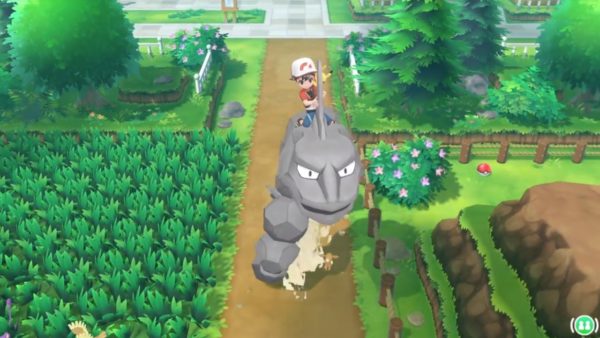
Whereas traveling in past Pokemon games was a matter of spamming the same attacks to get rid of wild Pokemon, or using Repels to reduce the encounter rate once you were leveled enough, Let’s Go Pikachu and Eevee circumvent that issue entirely. Being able to pick and choose your battles is a refreshing change of pace, not to mention the fact that there’s something seriously magical about watching these beautiful creatures roam free in the world. You can take your Pokemon out of their Poke Balls, too, and even ride on them if they’re big enough.
It’s also pretty funny when a swimmer tries to talk smack while you’re staring them down from atop a big ass Gyarados.
Even the lack of wild battles started to grow on me after a while, as I began to appreciate the quality-of-life improvements that this change afforded. No longer do you have to worry about running out of move PP while making your way through Victory Road, or wasting Potions because too many wild Pokemon got a cheap shot on you.
Pokemon Let’s Go Pikachu and Eevee handle wild encounters by only allowing you to capture Pokemon or run away. The system has clearly been lifted from the ever-popular Pokemon GO, where you’d be able to feed a Pokemon a berry to calm it down, then use motion controls to flick a Poke Ball to capture it. Trainer battles are still in the game, and swapping between catching wild Pokemon and fighting other trainers helps to break the sense of monotony that you could get in past entries.
I should mention that the entire game is fully playable in handheld mode, though you’ll still have to tilt the Switch slightly to center the camera on the Pokemon before tapping a button to throw a ball. Still, considering how well the game works in handheld mode with a full control scheme, Game Freak’s decision not to include Pro Controller support becomes all the more baffling.
While playing in docked mode, your only options are to play with the Poke Ball Plus accessory or with a single Joy-Con held vertically, which is pretty uncomfortable. Using the motion controls in docked mode also felt wildly inaccurate, especially when you start to encounter more Pokemon that are prone to jumping from side to side. It’s a shame as well, as the game looks especially breathtaking on a larger screen.
Catching wild Pokemon will yield experience points for your entire party, and you can even get an experience multiplier for catching new Pokemon, getting good Poke Ball throws, or building a chain by catching multiple of the same Pokemon in a row. During the early hours, the experience distribution can feel rather lenient, but rest assured that the game does ramp up in difficulty later on. Not that the Pokemon games have ever really been challenging, but still.
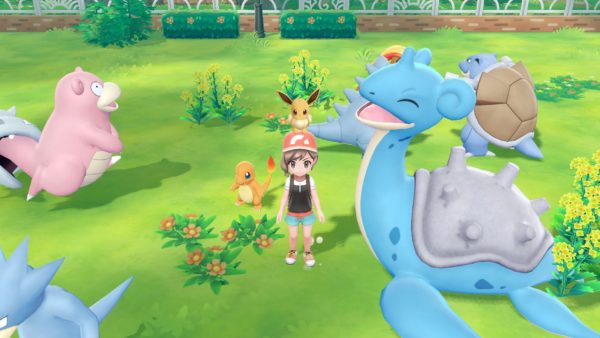
Pokemon Let’s Go Pikachu and Eevee aren’t just 1:1 remakes of the original games either. Aside from a new, more mild-mannered rival, Let’s Go Pikachu and Eevee have also brought the iconic Jessie and James into the fold, along with some small story twists to look forward to along the way. Several moments from the anime’s original season also show up in full here, such as Cubone’s tragic quest to find his dead mom, a real fan-favorite.
At times, it almost feels like you’re playing through the original Pokemon anime instead of Red and Blue. And in many ways, Pokemon Let’s Go is more about bonding with your pocket monsters rather than using them in dogfights. The game gives your starter companion perfect stats to start with, and they’ll also take on the age-old role of HM Slave, where they’ll surf, cut, and fly (you read that right) whenever you run into an obstacle. There are systems in place to let you play with them during downtime, and new cutscenes where your character is seen sharing an adorable moment with their little friend.
I never had any problem getting attached to my favorite Pokemon in Red and Blue, but Pokemon Let’s Go really makes it clear that you’re here to befriend these wonderful creatures, and train them as best as you can on this whimsical journey.
But where does that leave the hardcore fans? The ones who find joy in raising the perfect Pokemon for competitive play, all while ignoring that dead look in Ditto’s eyes as you continue to leave it in the daycare, forcing it to get it on with multiple breeding partners. You monster.
Pokemon Let’s Go Pikachu and Eevee do feature online play, but it’s severely limited compared to the more recent Ultra Sun and Moon. Online battles and trading can only be done by sharing a link code with a friend and inputting it in the game so you get matched up with each other. There’s also no breeding in Pokemon Let’s Go because, well, that wasn’t a thing in Red and Blue. Also missing from these games are held items, which can enhance your Pokemon’s performance in competitive battles.
Surprisingly, the game does make it much easier for players to manage their Pokemon’s natures and check their IVs more easily, but it’s obvious that Pokemon Let’s Go was designed for newcomers in mind, and nostalgic veterans alike.
After besting the Elite Four and being told that I’m the greatest (of course), I expected to set the game down with that victory lap. Unlike in Red and Blue, however, Pokemon Let’s Go features a pretty hefty amount of post-game content that will certainly appeal to the completionists and fans who really want to push themselves to the limit by learning the ins and outs of all 151 Pokemon. So, yeah, just in case you were worried about these games being too easy, trust me, it gets intense.
Even now, looking at the Kanto region on Switch still leaves me in awe at how far the series has come. We’d always known that Game Freak had created a world that was truly special when the original games first released on the Game Boy, and that vision’s finally been brought to life with Pokemon Let’s Go Pikachu and Eevee.
Score: 4.5/5 – Great
For more information on how we review games, check out Twinfinite’s review policy here.



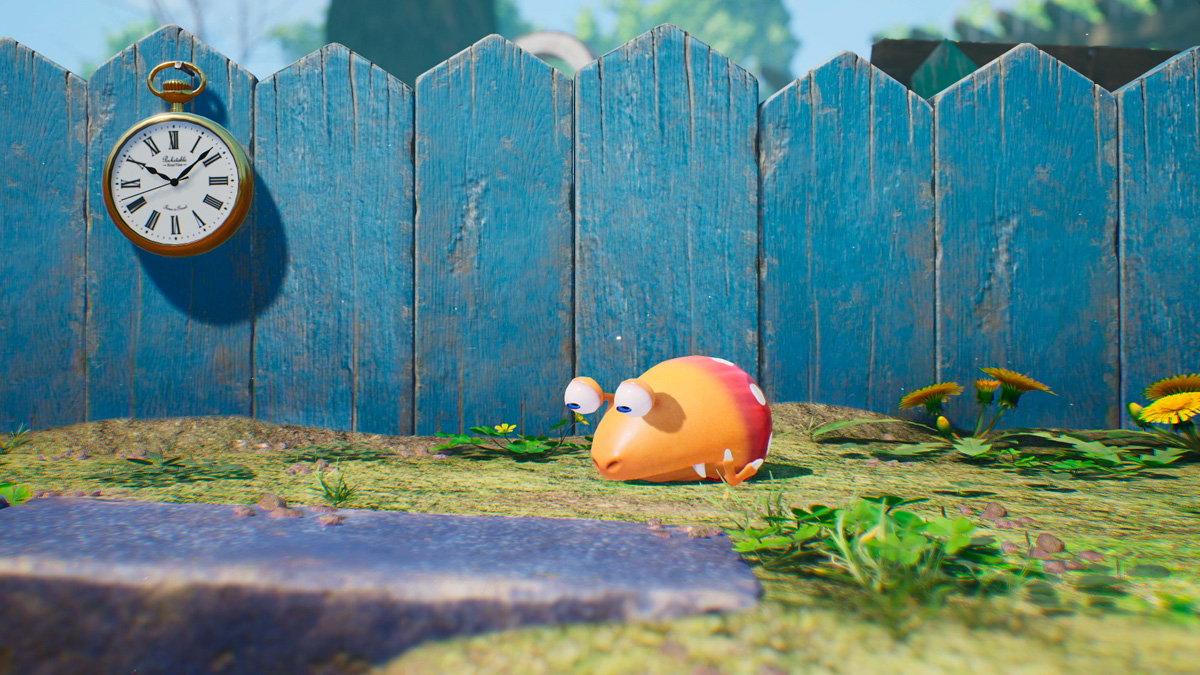

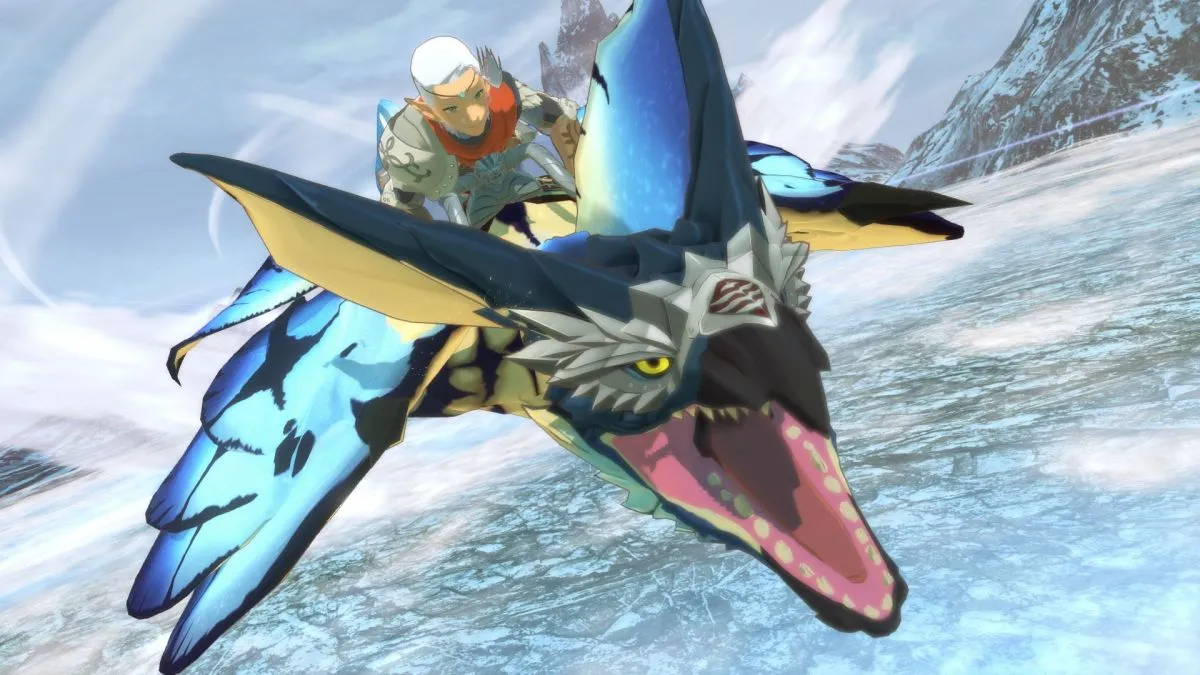
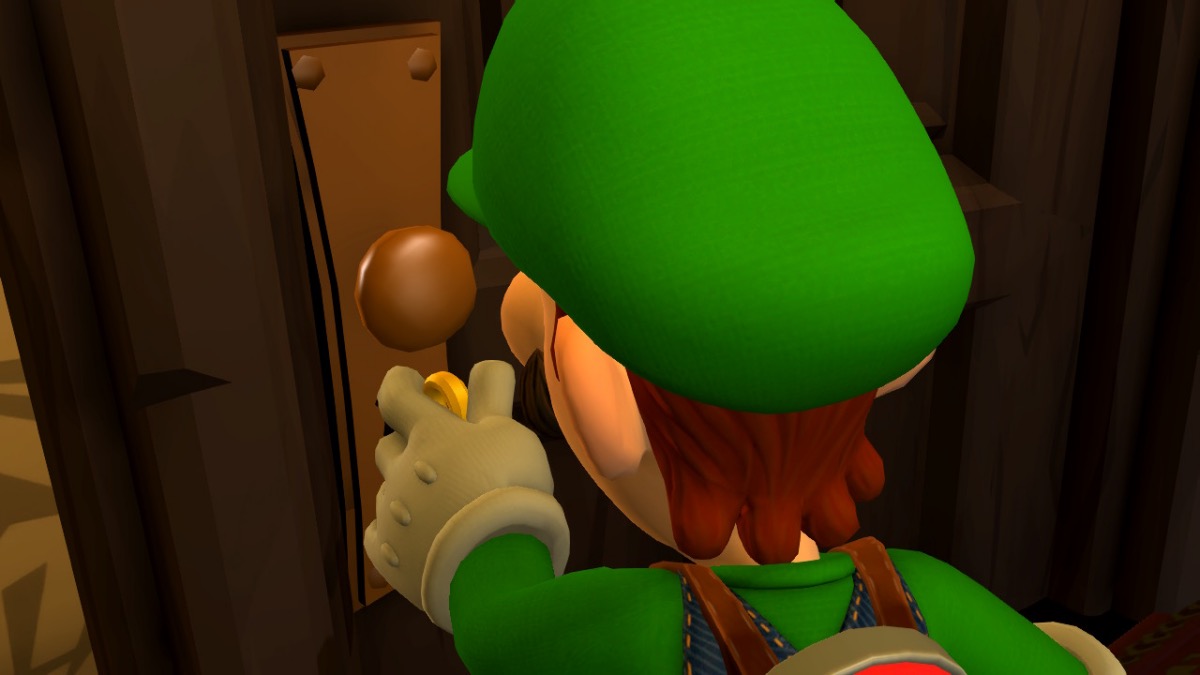

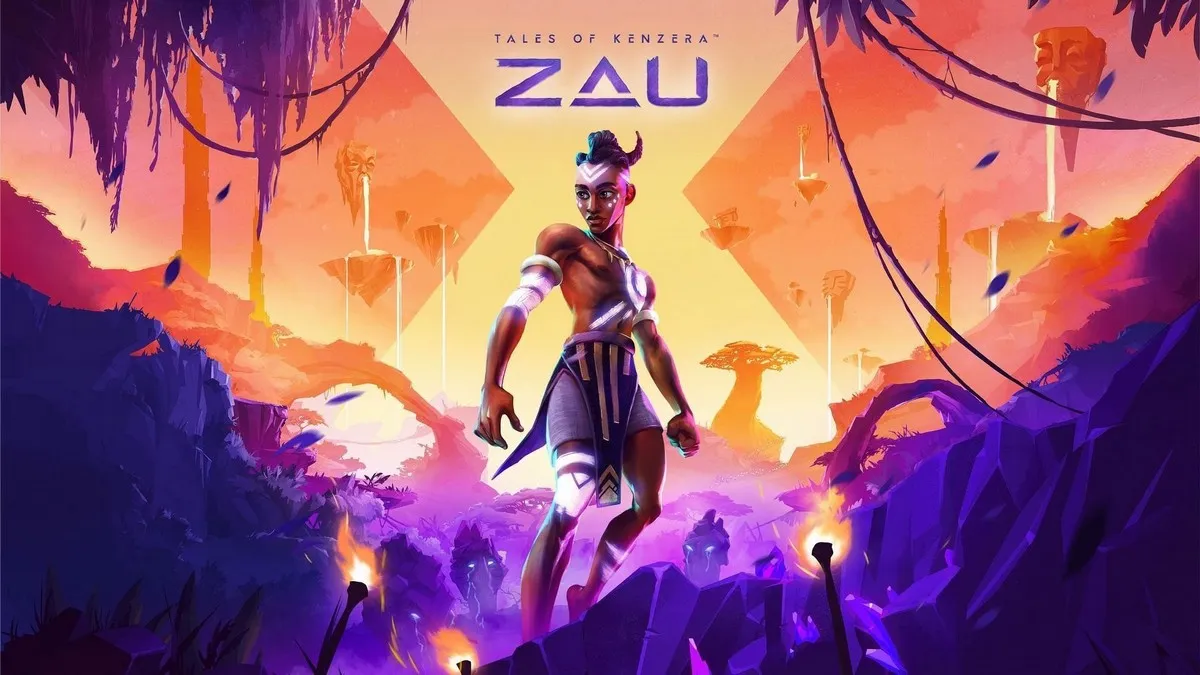



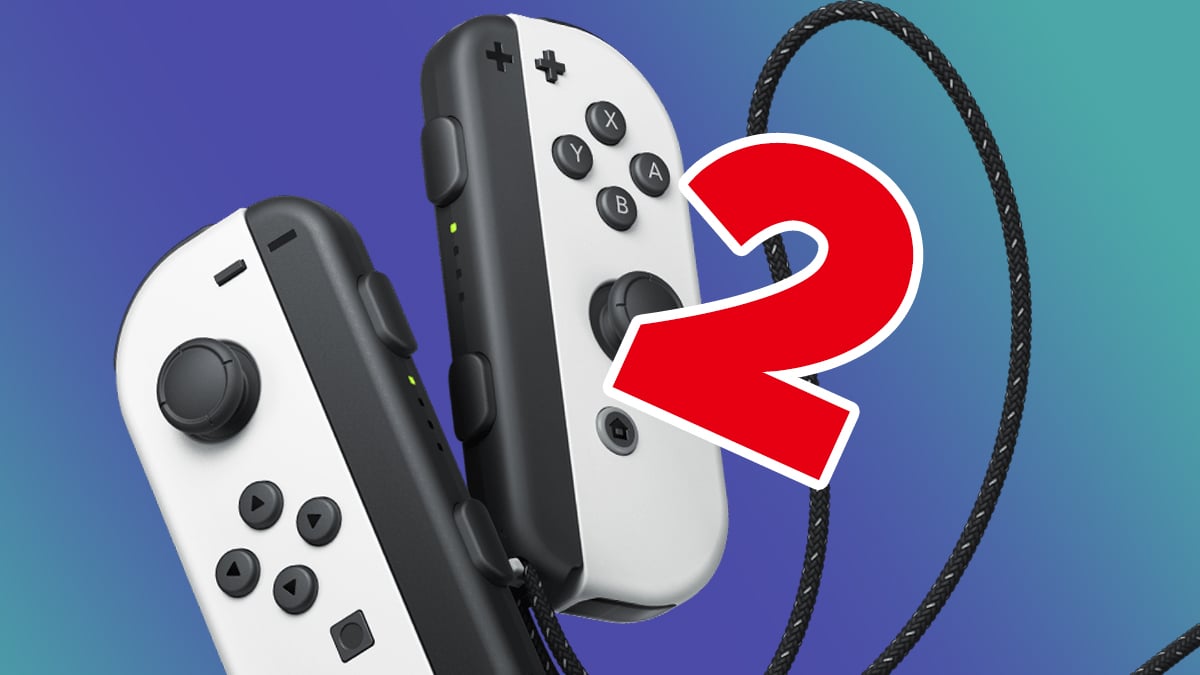
Updated: Nov 21, 2018 07:22 am